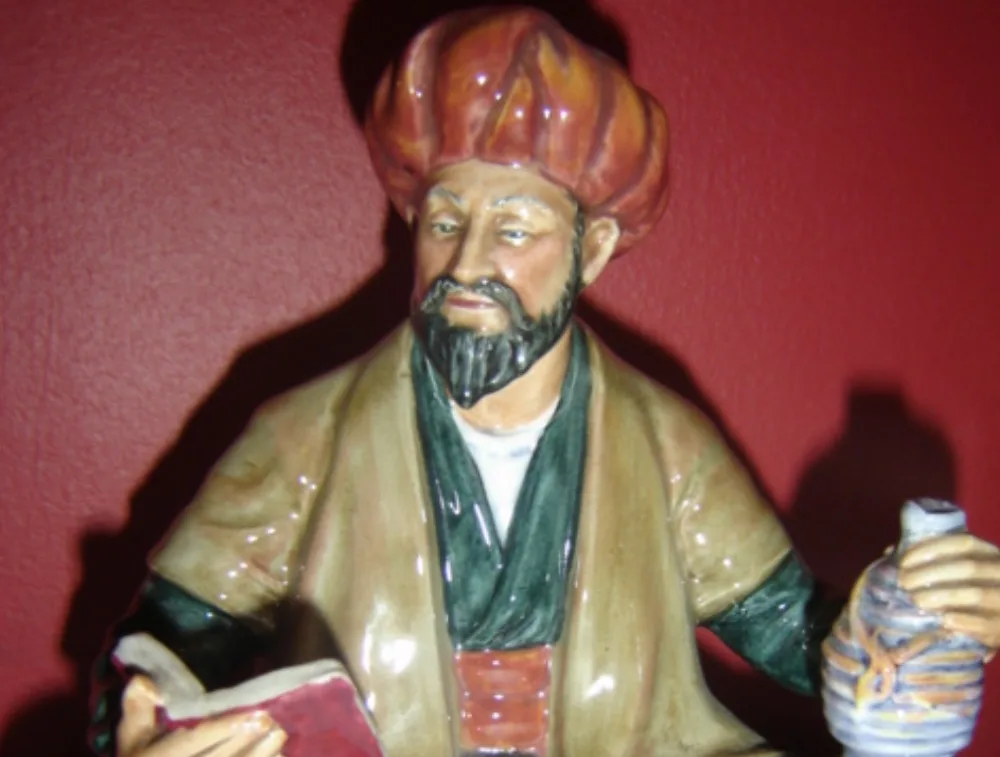In the Russian-language segment of the Internet, a lyrical five-line poem attributed to the famous Persian poet is very popular. We checked whether its author is indeed Omar Khayyam.
The full poem looks like this:
Two people were looking out the same window.
One saw rain and mud.
The other is green elm foliage,
It's spring and the sky is blue.
Two people were looking out the same window.
Posting This poem, signed by Omar Khayyam, has been shared by more than 50,000 Facebook users as of May 2022. It is also attributed to Khayyam on various resources dedicated to poetry (Ryfma, "RuStich", Poemata.ru, "Poems.ru"). And here on the website Socratify.net The five-line poem is attributed to the Avar poet Rasul Gamzatov.
The first thing that catches your eye is the style and style that is uncharacteristic of medieval poetry. Born on the territory of modern Iran, Omar Khayyam is best known in the world as the supposed author of quatrains under the general name rubai. The poem in question is not similar to examples of this form of poetry with the rhyme aaba (less often aaaa) in either size or vocabulary. And if Khayyam’s scientific heritage is very diverse (works on mathematics, astronomy and philosophy), then his accessible creative heritage is limited to only an uncertain (due to the impossibility of proving their authorship in many cases) quantity rubai. Among them, you can’t even find works that are similar in idea - at best, this is the following:
No one can tell what roses smell like...
Another of the bitter herbs will produce honey...
If you give someone some change, they will remember it forever...
You give your life to someone, but he won’t understand...
And even despite the presence of this quatrain in Western publications (in prose), his authorship has not been proven. Not to mention that it has little to do with our case.
There are no required lines in Gamzatov’s work either. In general, if you try to find traces of them in Russian-language printed publications, you will discover an interesting fact: until 2020, the quintet appears only in four books, three of which are devoted to practical psychology, and the fourth to exercises with one’s own vision. At the same time, the attribution to Khayyam is found only in two chronologically later books (2015–2016), and the earliest appearance of the quintet is dated 1994, when the first edition was published books “How to treat yourself and people, or Practical psychology for every day” by Nikolai Kozlov. In this work, clearly created under the influence of the works of Dale Carnegie, the author not only does not mention the names of Omar Khayyam or Rasul Gamzatov, but also does not say at all that this is a quote - everything looks like a lyrical insert after the advice “Teach to see the good.” Did Kozlov himself really write these poems?
Nikolai Kozlov gave the answer to this question many years later on his personal website: “I accidentally discovered how popular my little poem is:
Two people were looking out the same window.
One saw the rain and mud,
The other is green elm foliage,
It's spring and the sky is blue.
Two people were looking out the same window.
I typed “Two people looked through the same window” in a search engine and saw that the author was named either Omar Khayyam or Rasul Gamzatov.
Friends, I wrote this poem in 1987, having encountered Dale Carnegie’s couplet in his book “How to Stop Worrying and Start Living”:
Two men looked out from prison bars,
One saw the mud, the other saw stars. (With)
In 1994, I included this poetic sketch in my book “How to Treat Yourself and People, or Practical Psychology for Every Day.”
Kozlov is not entirely right - this couplet is indeed found in Carnegie, but does not belong to him. Even in book The famous American quotes these lines from one of Carnegie’s patients, quoting her father-in-law. However, the little poem gained popularity in the West much earlier - for example, it can be found in biographies Robert Louis Stevenson, published in 1906. And although the author of the original lines is unknown, it is definitely not Omar Khayyam, and in Russian the couplet received a rebirth thanks to a free translation by practical psychologist Nikolai Kozlov.
Cover image: Wikipedia.
Incorrect quote attribution
Read on topic:
1. “Two people were looking through the same window”
If you find a spelling or grammatical error, please let us know by highlighting the error text and clicking Ctrl+Enter.






